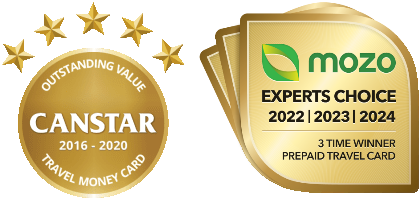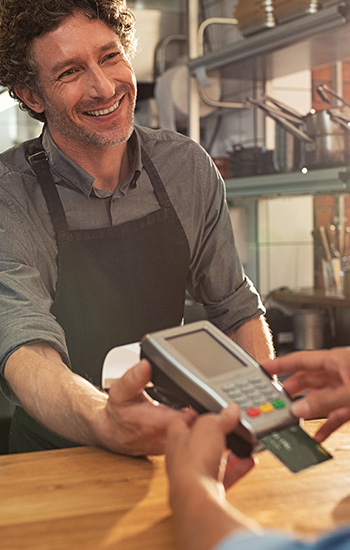Is it better to travel with cash or card?
Using both is ideal. Cash is essential for small purchases and places that don't accept cards. However, travel money cards offer security, locked-in exchange rates, and are widely accepted. Combining both ensures flexibility and safety during your travels.
Check out our tips on the Best Ways to Buy Foreign Currency.
Can I use my debit card overseas?
Yes, you can use your debit card overseas, but check with your bank first — foreign transaction fees, daily limits, and ATM access can vary depending on your provider and destination.
What is a travel money card?
A travel money card is a prepaid card that lets you load foreign currencies before you travel. It’s not linked to your bank account and helps avoid currency conversion fees. Most are widely accepted and can be added to digital wallets for easy payments.
How do travel cards work?
You transfer money from your bank account to the card and load your chosen currency. Then you spend like a normal card — in-store, online or at ATMs.
Is it better to use a travel card or a credit card?
While credit cards have the advantage of a larger credit limit than other options, the best option for travelling overseas is still a Travel Money Card. Travel cards offer several advantages that a credit card can’t compete with, including the ability to load multiple foreign currencies, secure PIN protection, locked-in exchange rates, no foreign transaction fees, online account management, and the option for emergency assistance.
What is the disadvantage of a travel money card?
If you don’t load the right currency, you may pay currency conversion fees. Depending on the card issuer, some cards charge a reload fee or inactivity fees if you don’t use them. And if lost or stolen, all your funds on the card could be at risk.
Can I withdraw money from my travel card?
Yes. With the Travelex Travel Money Card, you can withdraw cash fee-free from international ATMs where Mastercard is accepted. You can take out up to the equivalent of $3,000 AUD in 24 hours. Note: while Travelex charges no fees, some ATM operators may apply their own fees or limits.
Can I use travel card for online purchases?
Yes! You can use the Travelex Money Card for online shopping anywhere Mastercard is accepted. Manage your card easily through the Travelex Money App for safe, secure online payments and account management on the go.
Can I buy a prepaid travel card for someone else?
No. For security reasons, the name on the order must match the name on the payment method. This means you can’t purchase a Travelex Money Card as a gift. Each person must order and hold their own card under their name.
Can I get a travel card instantly?
Yes, you can walk into a Travelex store, purchase and load a Travelex Money Card on the spot. Alternatively, order online for next-day collection (when paying by debit or credit card) or have it delivered in 5–7 business days.
Can I top up my travel money card with cash?
Absolutely! you can top up your Travelex Money Card with cash at participating Travelex stores or top up online via BPAY, PayID, or the Travelex Money App.




